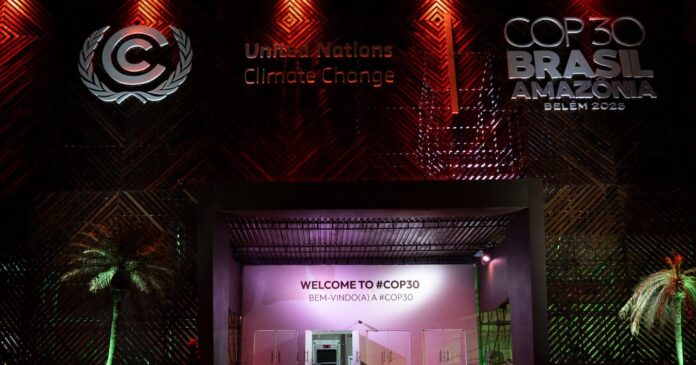The United States will not send high-level government officials to this year’s United Nations climate summit, marking the first time in three decades that the nation will be notably absent from these crucial international discussions. The summit, which begins Thursday in Belém, Brazil, brings together nations to address global warming. While some see this as a detriment to global cooperation, others believe it may even facilitate progress without interference from the Trump administration’s climate policies.
The Administration’s Stance and its Implications
The decision reflects a consistent pattern of hostility from the Trump administration toward climate action. Senator Brian Schatz (D-Hawaii) suggested that rather than engage in discussions where the U.S. might obstruct progress, it’s preferable to remain absent. The administration has actively discouraged climate efforts, partnering with oil-producing nations to block international agreements on plastics and shipping emissions, and even pressuring Europe to abandon its climate laws.
President Trump has openly questioned the validity of climate science, claiming that countries prioritizing clean energy will fail. This stance has prompted concern among international leaders, including Laurence Tubiana, who heads the European Climate Foundation, who has described the administration’s opposition as “aggressively anti-climate.”
The Potential for Smoother Negotiations
Some analysts suggest that the U.S. absence could allow for more straightforward negotiations among the remaining nations. While the United States has historically played a pivotal role in designing climate agreements, the potential for the Trump administration to derail even incremental progress has led some to welcome the break. This year’s summit will focus on countries delivering more ambitious plans to reduce carbon dioxide, methane, and other greenhouse gases. Tubiana emphasized that the world must “act with or without the U.S.”
Non-Governmental and Corporate Engagement
Despite the federal government’s withdrawal, a contingent of American leaders – largely Democratic state and local officials, business leaders, and representatives from organizations like the Sustainable Energy and Environment Caucus – will attend the summit. Governor Gavin Newsom of California, a frequent opponent of Trump, announced his presence and pledged to focus on “creating jobs and cutting toxic pollution.” Several major corporations, including GE Vernova, Bank of America, and Bayer, are also expected to participate, demonstrating the sustained commitment of the business community to addressing climate change.
A Historical Context
This year’s absence is a departure from previous Republican administrations. Although the United States withdrew from the Kyoto Protocol in 2001, the George W. Bush administration continued to participate in annual climate talks. Even after initially withdrawing from the Paris Agreement in 2017, the Trump administration continued to send State Department officials to the U.N. climate summits.
Lingering U.S. Involvement and a Complex Situation
Despite the lack of official representation, the United States remains technically part of the Paris Agreement until January 2020 and is a member of the U.N. body responsible for monitoring global climate progress. However, many experienced employees involved in the U.N. process have left the State Department, potentially diminishing the country’s ability to navigate the complex international negotiations.
The United States’ absence from this year’s climate summit highlights a significant shift in the country’s approach to global environmental cooperation. While concerns remain about the potential impact on progress, the presence of non-governmental organizations and businesses suggests that efforts to address climate change will continue, with or without the U.S.





































